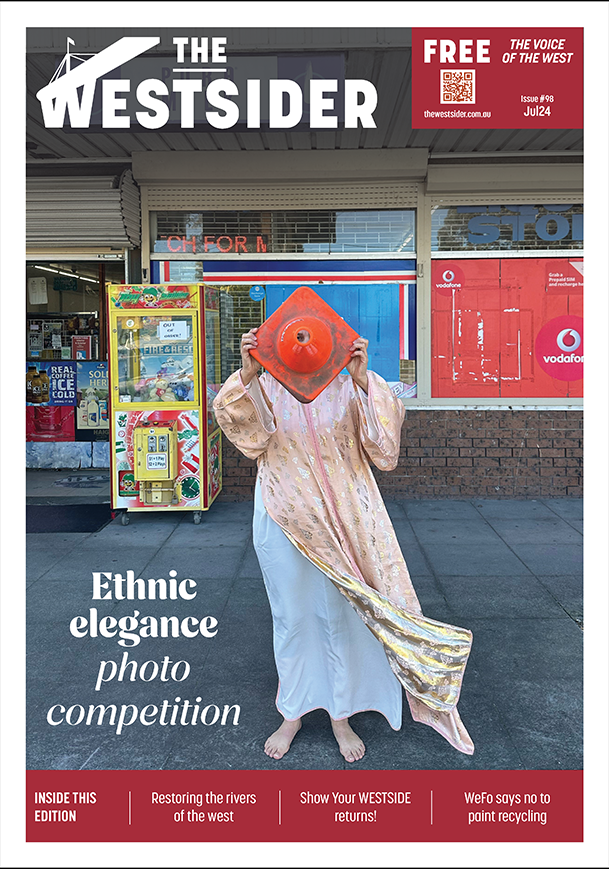By Athena Karamarkos
Alcohol and other drug use among adolescents is part of our society. In certain parts of Melbourne’s west such as in Brimbank and Hobson’s Bay areas, about six percent of the population at some point require the use of some type of drug and alcohol service (North Western Melbourne Care, 2022). This is higher than other municipalities, and higher than the state average. We’ve known for decades that a teenager’s brain continues to develop right through to their early twenties. Developmental theories in psychology set out to explain how children’s thinking and behaviors change as they get older, and they can also be used to help us understand why teenagers turn to substance abuse, and what can be done to deal with this issue.
If a person starts to drink from their early teens, by the time they’re of legal age they may very well have permanently affected their ability to think properly, their mood and mental health could be consistently compromised, and their sleep permanently disrupted. This is not even taking into account the fact that, whilst under the influence, adolescents are much more likely to engage in other risky behaviours such as unprotected sex and drunk driving. Or the fact that alcohol is a contributing factor to the top three causes of adolescent death, including accidental death (Sir David Martin Foundation, 2021).
Sociocultural theories are a set of theories specifically focusing on the impact other people have on the learning and decision making of children and adolescents. Back in the sixties, one such theorist, American- Canadian psychologist Albert Bandura proposed a theory he called social learning theory which later evolved into social cognitive theory. His viewpoint was that if children grow up observing adults engage in behaviours such as drinking with seemingly no negative consequences, if they identify with these people then they will copy these behaviours as they grow up .
Alcohol is part of Australian culture. According to the National Centre for Education and Training on Addiction just over twenty percent of adult Australians say they don’t drink. The rest of us consume alcohol, with over a third of us drinking every week, and fifteen percent of us drinking three-four times each week.
What does this mean for our children? For starters, it means that they are likely to grow up in a home environment where the adults around them model drinking. Regularly. And this is aside from the influence their peers start having on them as they transition through adolescence. In a large pre-pandemic study conducted by Columbia University seventy-five percent of the students surveyed reported they felt more encouraged to drink after watching online content of their friends and classmates drinking. Explicitly featuring teens in alcohol marketing campaigns is illegal, but there’s nothing stopping alcohol companies from using celebrities to post content of themselves holding an alcoholic drink. Or advertising alcohol during popular sporting matches.
The influence of others on our decision-making is strong. We all want to fit in, we all want to have a good time. If you’re young and part of fitting in means drinking and that’s what everybody else around believes a good time looks like, then it’s hard not to go with the crowd. Not oblivious to this fact, the government has mandated high-school alcohol and drug education programs as part of the school curriculum. The beauty of these programs is not only that adolescents are informed of the risks of drinking, they are simultaneously empowered to say no to peer pressure. There are other programs such as the P.A.R.T.Y programs, whose guest speakers aim to spread the message how one incident of drinking and partying can have devastating, life-altering consequences. One might imagine how psychologists and academics such as Bandura would be nodding in approval at these initiatives, because these programs aim to shift the collective mindset our culture has towards drinking.
Another great intervention is family therapy. Family therapy has been around a long time and as the name suggests, aims to help children and families deal with issues and change behaviours. The family unit can provide both protective factors as well as risk factors. If parents themselves are modeling alcohol and drug use at home, this puts their children at higher risk of doing so as they grow older. Or, parents may not have any substance issues, but may simply be struggling and concerned with their teenage child’s alcohol and/or drug use. This is where a trained therapist can guide and support families to manage this and become a stronger family unit in the process.
If this is something that you, or someone close to you may possibly benefit from, there are family therapy clinics and providers throughout Melbourne. Your GP at your local clinic can have a conversation about it including if there’s any referral paperwork they may be able to help you with. During the pandemic the government set up over twenty mental health pop up clinics in Victoria where people can walk in to ask for guidance and support and as I write this, some will continue to stay open. So do a Google search, make a phone call, go to an appointment if you have an adolescent who is dabbling in drinking. Their brain will thank you for it.

